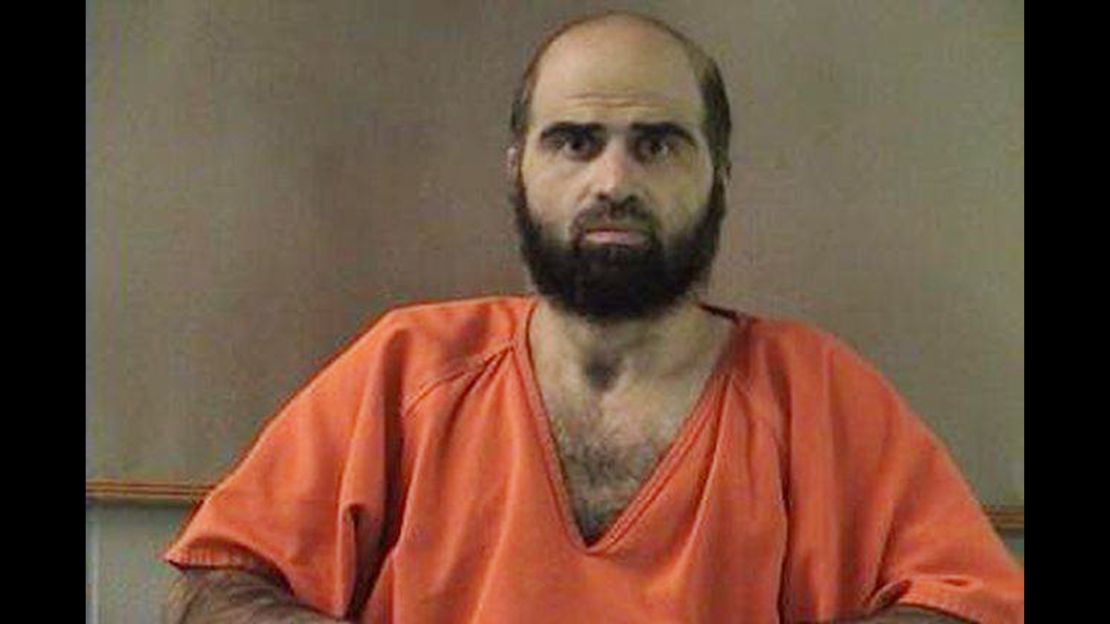Story highlights
Army Maj. Nidal Hasan is accused of killing 13 people at Fort Hood in 2009
A military judge ordered court martial proceedings to begin May 29
Testimony in the case will begin July 1, the judge ruled
Hasan, 42, faces a possible death penalty, if convicted
An Army psychiatrist accused of opening fire and killing 13 people at Fort Hood, Texas, will begin trial proceedings in three months, a military judge ruled.
Maj. Nidal Hasan is charged with 13 counts of premeditated murder and 32 counts of attempted murder in connection with a 2009 attack at the post’s processing center, where soldiers were preparing to deploy to Afghanistan and Iraq.

The judge, Col. Tara Osborn, ordered Hasan’s court -martial to begin May 29 with jury selection and testimony to begin on July 1.
The start of Hasan’s court-martial has been repeatedly delayed since it was initially set to begin in March of 2012, most notably after an appeals court delayed the case over the question of whether the Army major’s beard could be forcibly shaved.
Army regulations prevent soldiers from wearing facial hair while in uniform. Hasan, who is still considered a soldier, is a practicing Muslim and maintains he has the right to wear the beard under U.S. laws protecting religious freedoms.
The case resumed after a higher court dismissed the order that Hasan be shaved and replaced the judge in the case.
On Thursday, Hasan’s attorney requested a change of venue, telling the court that his client could not get a fair court-martial. Osborn did not immediately issue a ruling.
Fort Hood shooting victims want rampage labeled as terrorism
If convicted, Hasan faces a possible death penalty.
The November 5, 2009, attack left 13 dead and 32 people wounded in what has been described as the worst mass shooting on a U.S. military instillation. Hasan was paralyzed from the waist down after police exchanged fire with him.
A U.S.-born citizen of Palestinian descent, he was a licensed psychiatrist who joined the Army in 1997.
He had been scheduled to deploy to Afghanistan before the killings, but had been telling his family since 2001 that he wanted to get out of the military.
Hasan had told his family he had been taunted after the terrorist attacks of September 11, 2001.
Investigations tied to the Fort Hood shootings found he had been communicating via e-mail with Anwar al-Awlaki, a prominent radical Yemeni-American cleric killed by a U.S. drone attack in 2011.
The list: Despite emotions, little happens legislatively after mass shootings
